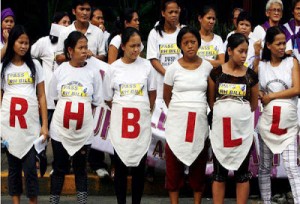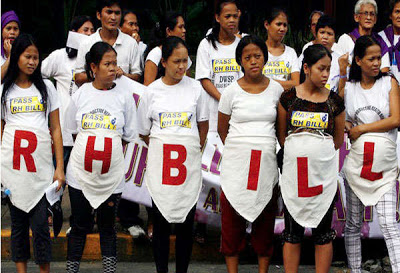
BAGUIO CITY, Philippines – The Supreme Court, in its summer session here today, declared Republic Act No. 10354 or the Reproductive Health Law as not unconstitutional, except for eight items in the law provisions and its Implementing Rules and Regulations.
Supreme Court spokesperson, Theodore Te, in a press conference, announced that the Supreme Court Justices, unanimously voted that that RA 10354 is not unconstitutional after a scrutiny of the various arguments and contentions of the parties in the foregoing consolidated cases consisting of 14 petitions challenging its constitutionality and two interventions to uphold its constitutionality.
The eight items that were declared unconstitutional are namely: Section 7 – (a) and (b); section 23 (a)(1), particularly section 5.24 thereof; Section 23 (a)(2)(i); section 23(a)(3); section 23(b) particularly section 5.24 thereof; and section 17; as well as Section 3.01 (a) and (j) of the RH – IRR; and section 23 (a)(2)(ii).
Section 7 (a) pertains to requiring private health facilities and non-maternity hospitals and hospitals owned and operated by a religious group to refer patients, not in emergency or life threatening case, as defined by Republic Act 8344, to another health facility which is conveniently possible.
Sections 23(a)(1) refers to punishment to any health care provider who fails or refuses to disseminate information regarding programs and services on reproductive health regardless of his/her religious belief.
For Section 23(a)(2)(1), it allows a married individual, not in emergency or life threatening case, to undergo RH procedures without the consent of the spouse.
Section 23(a)(3) – section 5.24, pertains to punishment to any health care providers who fails and/or refuses to refer a patient not in emergency or life threatening case to another health care service provider within the same facility or one which is conveniently accessible regardless of his or her religious belief.
Section 23(b) – section 5.24 pertains to punishment on any public officer who refuses to support RH programs or shall do any act that hinders the full implementation of a reproductive health program regardless of his or her religious belief.
Section 17 refers to rendering or pro-bono RH service, insofar as they affect the conscientious objector in securing PhilHealth accreditation.
Section 3.01 (a) and (j) of the RH – IRR, according to the SC, insofar as its uses the qualifier “primarily” for contravening sec. 4(a) of the RH Law and violating section 12, Article II of the Constitution.
Section 23 (a)(2)(ii) pertains to penalizing a health service provider who will require parental consent from the minor in not emergency or serious situations.
Purple Ribbon for RH Movement convenor Dr. Esperanza Cabral, in an interview, said the SC decision only shows that democracy rules in the country and the upholding the RH Law is a victory for all women and female young adults as the RH Law will provide them better health and free informed choice.
Risa Hontiveros of Akbayan, also stressed that it is a total victory for the RH Law advocates. For the items in the law that were declared unconstitutional, she said that they will study and look into correcting it based on the wisdom of the Supreme Court.
For Pro-Life Lito David, he said that the SC ruling also favors their cause as there are provisions of the Law that were declared unconstitutional.
Te, in closing the press conference, said that like in any court decision, a party can file a motion for reconsideration after 15 days.











Leave a Reply